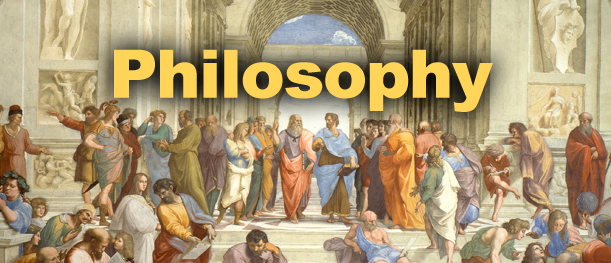Why Philosophy today is more relevant than ever?
In the recently held National Seminar on “Iqbal’s Approach to Indian Religious Philosophy”, organized by Iqbal Institute of Culture and Philosophy, University of Kashmir, on 12th of June 2024, the University Vice Chancellor, Professor Nilofer Khan, announced that the University is soon going to introduce a full-fledged PG Programme in Philosophy for its students, thus, fulfilling a long-held dream of many students, scholars and the larger community. The seminar was attended by, among others, Professor Promod Kumar Dash, Head of the Department of Philosophy, Utkal University, Odisha, who was the key note speaker. He exuberantly congratulated the honourable V.C. for the announcement, besides sharing some of his thoughts on the subject matter of the seminar. Professor Hamidullah Marazi, who was the distinguished guest of the event, also presented his thanks & congratulations to the Vice Chancellor, besides noting that “a university without a philosophy programme is incomplete”. Why Philosophy today is more relevant than ever? Let us note few important points in this regard.
It would be ideal to begin with by dispelling a popular cliché regarding philosophy (which would in turn reveal its relevance& importance upon us) namely that “philosophy is mere talk whilst offering no concrete solutions or answers”. Although this definition of philosophy is quite narrow and inadequate, but even if we go ahead with this colloquial definition, we will realize that it is precisely this nature of mere talk, theory & patient contemplation, that establishes the need, value, relevance and importance of philosophytoday, particularly in the age of unbridled technological expansion, exploitation of nature, multiplication of waste, whilst deepening multiple fault lines – erupting from an attitude of hurried thoughtless action. The world (of incessantspeed and action) is so busy that it has no time for itself! It has no idea as to where it is heading towards. What are the consequences of certain technologies; how to properly formulate our interface with nature and fellow human beings; how to critically question our errors and revisit our perspectives? These, and other such serious questions, precisely need a patient, idle & theoretical focus and attentionwhich philosophy provides.
Philosophy may not present big answers or produce advanced technologies but this is not what we need philosophy for, nor does it claim to do so. The problem is not that we lack big answers but the problem often lies in the very way in which thequestions/problems are formulated/conceived/defined at the first place. Owing to hastened inadequate thinking, the problems are wrongly formulated to begin with – engendering faulty solutions. Simply realizing the contours and complexities of a problem is half the solution. We may take the example of Global Poverty or Climate Change and the inadequacies of unthought, half-baked, atomised, hastened actions.
There is a sort of pseudo-urgency when it comes to such “big problems”, as Slavoj Žižek points out. The attitude is “don’t think, just act”. But it is precisely this un-thought hastened action that enables and perpetuates the problem. Let us take an example that Žižek presents in his book Violence: Six Sideways Reflections, that Starbucks once, in its stores, at the entrances, carried posters, saying that “a portion of the chain’s profits went into health-care for the children of Guatemala, the source of their coffee, the inference being that with every cup you drink, you save a child’s life” – but in the process, completely masking the deeper structural issues which engender the problem at the first place. A proper, systematic, efficient, collective and well thoughtout response is pulverized into ineffective, rhetorical & atomised actions.
What is at the root of the current looming environmental crisis today? If we reflect upon it a little, it will dawn upon us that the rootcause is a particular conception of human interface with reality i.e. a particular way of perceiving nature and conceiving our relationship with it. This, fundamentally, is a philosophical problem. As long as nature is perceived as amere object (a resource to indiscriminately tap into), a mere raw material to be exploited, such problems shall continue. No amount of technological interventions would alone suffice. Beneath our interaction with nature, underlies a certain “ontology”, under whichreality reveals itselfthroughcertain categories (such as “raw material”), which then determine our action & behaviour apropos nature. The looming environmental crisis, therefore, is not a merelyscientific problem but rather a deeply philosophical problem. Pop culture suggests that “philosophy is useless”; however, it is precisely this obsession with use and utilitarian ontology that is at the root of these crises.
“Just do it” seems to be the creed of the contemporary instrumentalist mass mentality. This un-thinking attitude is precisely what has put the masses on a sort of a “sleep mode”. People seem to simply sleep-walk through life, more so in the era of the “digital”. It is precisely this mind-set of continuous unthought action that is problematic. Infinite scrolling is a typical case example of contemporary thoughtless (pseudo) “action”. Whether it be various forms of psychopathological violence or the mindless consumerism (putting both self and environment in danger, besides perpetuating the dispossession of the marginalized), the fault lies with the pervading ethos of the dearth of true rigorous thinking (both self-reflexive and other regarding)clubbed with mechanical numbness & mindlessness.
Popular dogma says: let us shun this philosophical idle contemplative thinking& return back to our daily practical lives; although such a call has a certain legitimacy (to avoid a complete disconnect from concrete reality), even within philosophical literature (such as Wittgenstein’s later philosophy), but there is a deeper catch here. When we do come back to our ordinary daily practical lives, we encounter problematic ideological assumptions that people live by, biases, unfounded conceptions& customs,psychopathologies, various kinds of physical and psychological abuse, a sort of a numbness, indifference –perpetuating all kinds of practical problems.
To give an illustration, the present author recently came across an Instagram video, showing a frantic helpless woman in her kitchen, when suddenly a gas cylinder blasted open, most probably due to the recent surging heat wave (as the caption read so); thankfully, the woman escaped unhurt but the comment section of the video revealed the dangerously numb everydayness of masses. Majority were trolling the woman with absurd comments. This is what our “ordinary” everyday reality looks like which is plagued with mindless numbness, indifference, unthought and uncritical presumptions and what not. It is for this reason that the everyday practical life warrants a rapturous puncture of a deep, critical, rigorous thinking which awakens people to actual “good” life. This “good” life has been one of the main goals of philosophy since its earliest conceptions.
We may further note the realities of advertisement, virtual world and the popular ideology (the background assumptions that people live by).Our unconscious realities are tapped into to transform us from “citizens into “consumers” as Edward Bernays, Freud’s nephew and the progenitor of American advertisement & PR industry, did, whilst employing Freud’s ideas and was successful in making people want what they actually didn’tneed. Here, the philosophical work of the Frankfurt school is ever relevant. As industrial mass production picked pace, capitalism needed fetishizing consumers and not awakened thinking humans. And thus, in our times, the very facade of freedom (to buy and pursue limitlessly) is highest unfreedom that human race has ever witnessed. Mindless pursuit of pleasure converts us into “dopamine machines”, as Dr Anna Lembke points out, with the only possible way-out of taking a distant contemplative restraint.
Philosophy, above all, is an address to the human subject, as Alain Badiou notes in his Badiou by Badiou. Philosophy is not merely taught to the subject as a body of knowledge – to be memorized – but rather addresses the very “subjectivity” of the student. Many sciences may be taught to the subject – maintaining a certain fact-value dichotomy – but philosophy’s ultimate aim is to enable the knowledge to fundamentally transform the subject. This is because a transformation of one’s consciousness/awareness or “perspective” (way of seeing/understanding), fundamentally transforms one’s whole being. To put it simply, the task of philosophy is to make us better human beings. It is here that philosophy can positively interact with religion and religious life. Philosophy, in its critique of “resentment”, can enable a truly authentic religious life. The open-ended and critical nature of philosophy is not its demerit but precisely its plus point; it is this critical attitude towards self and social reality that transforms both individuals& the community. It is an attitude of openness and humility & not a bag of “big answers”. Philosophy is another name for ‘khud-ehti sabi’.
What makes Philosophy indispensable? The point is that philosophy as a “foundational study” is critically important to understand and refine the first principles and theoretical frameworks of various subjects/disciplines. Every mode of inquiry is founded upon a certain set of foundational principles and theoretical frameworks which then guide and direct the respective investigations. Whether it be physical sciences or social sciences, the edifice of every investigation is built upon philosophical principles and theoretical frames. Thus, philosophy is not only indispensable but of fundamental importance.Globally, students are benefiting from courses such as philosophy of science, philosophy of mind, philosophy of religion, philosophy of mathematics, philosophy of language, phenomenology & hermeneutics,to name but a few. The science students of University of Kashmir, for example, should at least have the facility of opting for a course on “Philosophy of Science”, to properly acquaint them with thenuances of the methodology of science, its scope&limitations and its interface with nature andsociety. It is for this reason, among others, that IITs have introduced philosophy for their engineering students.
To conclude, University of Kashmir may consider introducing courses on Western, Islamic and Indian philosophical traditions to provide a diverse exposure to students which can go a long way in creating a fruitful civilizational dialogue. We hope that the upcoming programme becomes a beacon of light for the larger community both inside and outside the university. Philosophy can do wonders as it begins and ends in wonder itself.
(The Author is Masters in Philosophy from the Centre for Philosophy, JNU and currently pursuing PhD from the same centre. Feedback: [email protected])








